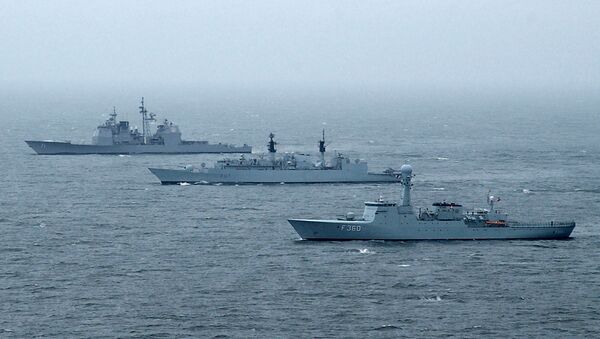According to a Monday news release by US Navy Forces Europe-Africa, the drills will happen from June 7 to June 16 and involve 29 maritime units, 29 aircraft and 3,000 personnel from 17 NATO nations and two partner nations.
The participating nations are: Canada, Denmark, Estonia, Finland, France, Germany, Greece, Italy, Latvia, Lithuania, the Netherlands, Norway, Poland, Portugal, Spain, Sweden, Turkey, the UK and the US, according to the release.
"BALTOPS provides the opportunity for NATO and partner nations to operate together, sharing best practices to improve real world operations," US Vice Adm. Lisa Franchetti, commander of Naval Striking and Support Forces NATO as well as of the US 6th Fleet, said in a NATO release on Wednesday.
"Although we'll conduct this year's event entirely at sea, BALTOPS 2020 will demonstrate our continuous commitment to regional security and reinforce the inherent flexibility of our combined naval force to operate together under any circumstances,” she said.
Defense News reported the captain of the German frigate Lübeck said his crew would attempt to stay 1.5 meters apart wherever possible, in order to maintain social distancing and prevent the spread of COVID-19.
With the drills taking place just off the Russian coast, Sebastian Bruns, a naval analyst at the University of Kiel, told Defense News that “the idea is to demonstrate that the Baltic Sea isn't anyone's front yard, but that freedom-of-navigation principles apply just the same here.”
Freedom of navigation operations (FONOPS) have served as the coverall excuse for provocative actions at sea by the US and its allies, primarily in the South China Sea and Taiwan Strait. However, while in the case of China’s claimed waters the conflict over territorial claims is clear, in which waterways of the Baltic NATO believes the freedom of navigation is threatened is considerably less so.
Meanwhile, underneath the Baltic waves, the Nord Stream II gas pipeline from Russia to Germany is nearing completion, and earlier on Friday, US lawmakers introduced their second attempt to punish companies involved in the project, as Washington continues to pressure European nations into buying up its excess natural gas instead of purchasing Russia’s.


